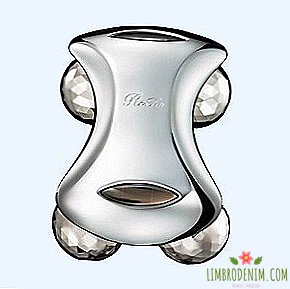Everything is complicated: Male orgasm, about which we do not know much
It is generally accepted that male sexuality is simpler than female. According to statistics, 95% of heterosexual men regularly have an orgasm - much more often than their partners (65%). At the same time, 28% of men still periodically simulate an orgasm, even during oral sex. It turns out that everything is not so simple. We explain how a male orgasm differs from a female orgasm, what are the reasons for an erection, and why ejaculation does not always speak about pleasure.
Stereotypes and hormones
In both men and women, testosterone provides the very desire to have sex or masturbate. In men, it is much more, as he is responsible not only for the libido, but also for the development of primary and secondary sexual characteristics, as well as for puberty (so to say that men always want sex more is wrong). True, for women in the process of sex two more hormones are important: estradiol, it is thanks to him that lubricant is produced in the vagina, and progesterone. Most testosterone is produced in men aged about 25 years; after 30, it naturally diminishes. This is believed to be a normal part of growing up.
However, testosterone only provides an interest in sex, whereas a much more complex system is responsible for orgasm and attraction to a particular person. In general, studies suggest that men and women feel the same orgasm. Pulse, blood pressure, respiratory rate increase in both sexes, and oxytocin (the so-called happiness hormone) increases to the same level. Moreover, men and women very similarly describe the sensations of orgasm - this is confirmed by a whole series of surveys conducted since the 70s and on the whole dispelling the myth about the "smoothness" of the female and "sharpness" of the male orgasm.
However, there are many stereotypes about the difference between male and female post-critical behavior, and some of them seem to be somewhat truthful. For example, people with high testosterone levels (mostly men, but also some women) do not particularly want to cuddle after sex - this is due to the fact that testosterone is generally hostile to oxytocin and can distort its effect (feeling of peace, emotional closeness with a partner etc.).
A husband who turns to the wall immediately after sex is a stereotypical cliché, but there are theories according to which men really want to sleep more after an orgasm. Firstly, prolactin can affect this - in men it is produced in greater quantities after orgasm and generally contributes to peaceful sleep. Secondly, after ejaculation, a man, unlike a woman, enters the inevitable stage of sexual quiescence (the so-called refractory phase) and can have sex only after some time, while a woman may experience several orgasms in a row and, accordingly, remains energetic. At the same time, heterosexual women experience orgasms less often than others, so an insult to a sleeping man can also arise from the fact that a woman, unlike her partner, simply did not reach the peak.
Reflexes and smells
It is believed that men are much more difficult to hide the desire to have sex, hence all the jokes about the "sudden riser". However, an erection does not always talk about arousal, it is divided into three types: spontaneous, reflex and psychogenic. Spontaneous arises unconsciously and most often happens in a dream. So, for a night, a man can have 5-6 erections. And, by the way, the famous morning erection is also among the spontaneous states, moreover, there remains a cliché from youth comedies rather than the general rule, that is, not everyone has it. The first erections in men appear in childhood and have little to do with sexual arousal. But over time, the amount of testosterone, and with it the frequency of erections, increases. "Spontaneous erections have no direct connection with testosterone. But the greater its concentration, the more often they occur. For example, a teenager will have more of them than a child," says urologist Evgeny Grekov.
Reflex erection occurs by touching the penis and anal area. "An erection can occur even from medical manipulations that are performed with the penis. Of course, it is usually associated with sexual stimulus, but sometimes it is pure physiology," says Andrologist urologist Andrei Gerich. Psychogenic erection, which is controlled by the limbic system of the brain, is responsible for sexual attraction. It is influenced by sounds, smells, fantasies, tastes, visual images and everything related to sexual imagination. By the way, on average, a man has eleven erections per day.
However, do not think that the penis reacts to touch in any situation. "If we are talking about potential sexual abuse, a man produces a stress hormone - cortisol, and subsequently adrenaline. The erection itself is almost incompatible with adrenaline," Grekov says. True, there are cases when men (as well as women) experienced an orgasm during rape. Sometimes this was due to Viagra mixed with drinks, so that the victims in any case experienced at least an erection. In some cases, men experienced a complex feeling, which simply can be called involuntary sexual satisfaction, but, like in women, the physiological response is absolutely not obliged to equal emotional pleasure. In general, this topic remains poorly understood.
Dry and long orgasms
Researchers agree that the male orgasm is shorter than the female. On average, it lasts about 6-10 seconds, while the female can last more than 20 seconds. This is easily explained by physiology, says Andrei Gerich: "In a man, an orgasm consists of two phases. The first occurs when sperm pass through the deferent ducts into the urethra. The second is when the prostate and smooth muscles contract, which leads to the ejaculate release." According to him, the first phase takes 2-4 seconds, the second also lasts only a few seconds.
"In general, men practically cannot experience multiple orgasms, which often happens in women. A male orgasm is longer or shorter, but a refractory period inevitably occurs after ejaculation," Gerich says. This is a rest that is necessary for a man between sexual acts. The recovery period for each is individual - it can last from several minutes to several hours, and both options are absolutely normal, but on average it takes about half an hour. True, it is important to understand that even if the refractory period is over, a man does not necessarily want to have sex again: the level of libido is different for everyone and is completely independent of gender.
In theory, men can experience multiple orgasms if they learn to control their body. We are talking about the so-called dry orgasms, when a man deliberately delays ejaculation in order to get more pleasure (and does not suffer to please the partner with a long sexual intercourse). This is not an easy technique, but you can try to master it with the help of Kegel exercises (they are really needed not only by women), which are also useful for the prevention of impotence, hemorrhoids and problems with urination. However, sexologists do not advise to rely on a particularly bright orgasms without ejaculation - after all, this is the exception rather than the rule.
Conscious "dry orgasms" should not be confused with pathology. There is, for example, retrograde ejaculation - a violation of the mechanism of ejaculation, in which the sperm does not go out, and enters the bladder. Ejaculation can occur without orgasm, or vice versa - orgasm may not be accompanied by ejaculation. All these cases require an appeal to a specialized doctor. Also, men can simply experience difficulties with the onset of orgasm. There are many reasons for this: banal stress, antidepressants, reduced testosterone, or functional impairment in the urogenital system.
Erectionless orgasm and prostate wonders
The male body is somewhat more complicated than it is commonly believed, and erectile dysfunction, contrary to stereotypes, does not at all indicate the end of sexual life. So, for example, orgasm (and, accordingly, ejaculation) can happen without erection. "It helps a lot to mature men who do not have enough testosterone for a full erection. There are special techniques that help you to have fun with erectile dysfunction," says Yevgeny Grekov. Sex toys, massage, oral sex, a feeling of intimacy - all this helps to experience an orgasm without erection.
Men make excessive demands on the length of sexual intercourse. Although the category of fast, for medical reasons, fall into very few. “The average duration of sexual intercourse for all is individual, but the norm begins with two or three minutes,” says Alexander Gerich. This is much at odds with the toxic notion that a “man should” be able to continue intercourse for hours. First, delaying ejaculation can be detrimental to health, and secondly, forty-minute frictions are a dubious pleasure for both partners.
Another problem in the perception of male sexuality is phallocentrism. For many years, it was believed that the only erogenous zone in men was the penis. While the rest of the body during sex turns only into the surface, from which the phallus is pushed. In fact, the body of a man is much more complicated and sensitive. The same penis can be stimulated in different ways, and the male "point G" is not a member at all, but the prostate. Her massage makes it possible not only to reach orgasm without stimulating the penis, but also to reduce the risk of prostatitis and erection problems. Of course, prostate massage has nothing to do with sexual orientation, despite all homophobic stereotypes. By the way, according to the company Healthy and Active, over the past five years, sales of prostate massagers increased by 56% among heterosexual men over the age of forty-five. And Google queries on this product have tripled since 2004.
Men enjoy the stimulation of the nipples, the area around the anus, the inner side of the thighs, buttocks and anything else (some even have an orgasm from touching the areas not related to the genitals). True, because of gender stereotypes, they often do not dare to examine their bodies outside the penis. While the female orgasm is considered a secret, the male is undeservedly simplified and reduced to the same set of movements. So the struggle for a variety of sexual practices helps not only women who cannot orgasm during penetration, but also men, many of whom know very little about the potential of their bodies.
Cover:Jag_cz - stock.adobe.com





